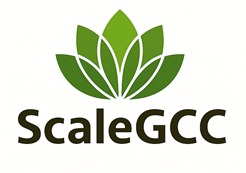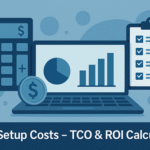Now Reading: Is your GCC Market Assessment driving real outcomes or just ticking boxes?
-
01
Is your GCC Market Assessment driving real outcomes or just ticking boxes?
Is your GCC Market Assessment driving real outcomes or just ticking boxes?
ScaleGCC Editorial TeamServices3 months ago657 Views

GCC Market Assessment: Real Outcomes or Tick Boxes
Ever feel like your GCC Market Assessment is more about ticking boxes than uncovering the real story? You’re not alone. Too many organizations settle for glossy presentations packed with generic data, never really talking to locals or testing assumptions. A genuine GCC Market Assessment digs deeper chatting with stakeholders on the ground, exploring hidden cost drivers, and stress-testing scenarios before you sign on the dotted line. In the next few minutes, you’ll learn how to turn that one-off report into an ongoing, insight-driven engine that aligns with your strategic goals and delivers measurable impact.
What is a GCC Market Assessment?
A GCC Market Assessment is a structured evaluation that helps you pinpoint the best location for your Global Capability Center. It goes beyond spreadsheets—mixing hard data on labor costs, talent pools, and incentive schemes with on-the-ground insights from site visits and stakeholder interviews.
A thorough GCC Market Assessment covers:
Talent availability and skill gaps
Cost structures and local incentive programs
Regulatory landscape and compliance requirements
Cultural fit and operational readiness
By weaving together these pieces, you transform raw numbers into clear, actionable recommendations that drive real strategic outcomes.
Why do traditional GCC Market Assessment approaches fail?
Traditional assessments often miss the mark because they rely too heavily on generic templates and public databases, ignoring the subtle realities of each location. Analysts may crunch global cost averages without ever speaking to local experts or verifying recent policy shifts, so your GCC Market Assessment ends up as a static scorecard rather than a living guide. Without customized weightings that reflect your specific priorities, whether talent quality, language skills, or time-zone alignment and without on-site visits to validate assumptions, you’re left reacting to surprises instead of anticipating opportunities. Moreover, a one-off report quickly becomes outdated as regulations change and talent markets shift, leaving you with glossy slides but no lasting advantage.
Meanwhile, competitors who dig deeper gain early insights into emerging tech hubs, untapped talent pools, or new incentive schemes. In contrast, a tick-box GCC Market Assessment leaves you reacting to surprises, rather than staying several steps ahead.
Core Components of Effective GCC Market Assessment Framework

The funnel shows how broad, noisy data becomes focused, actionable strategy:
Raw Data Collection captures all available market reports and benchmarks.
Ground-Truth Research weeds out inaccuracies through site visits and interviews.
Customized Criteria tailors evaluation to your priorities (talent, cost, incentives).
Rigorous Data Validation verifies assumptions against proprietary and vendor data.
Scenario Modeling tests outcomes against economic or regulatory shifts.
The result is a distilled set of strategic insights that guide your GCC decisions.
How to Validate Your Service Provider Findings
Even the most polished GCC Market Assessment won’t deliver real value unless you vet your provider’s work. Follow these steps to ensure their insights hold up in the real world:
Request Methodology Transparency:
Ask for a detailed breakdown of data sources, sample sizes, and weighting criteria. Insist on clarity around assumptions and calculation methods.Review Raw Data & Deliverables:
Examine interview transcripts, survey responses, and spreadsheets. Spot-check figures against publicly available benchmarks or your own internal data.Conduct Independent Spot-Checks:
Take a sample of key findings, such as talent-availability ratings or cost estimates, and verify them through your own mini-surveys or quick site visits.Interview Local Stakeholders:
Speak with HR leaders, real-estate agents, or government officials to confirm critical inputs like salary ranges, incentives, and regulatory timelines.Compare Against Multiple Sources:
Cross-reference the provider’s conclusions with other industry reports, vendor whitepapers, or subscription databases to catch discrepancies.Test Scenario Assumptions:
Re-run their models with alternative inputs (e.g., 10–15% higher labor costs or delayed incentives) to see if your strategic recommendations still hold.
By rigorously validating each piece from raw data to final scenarios, you transform a “tick-box” exercise into a trusted roadmap for your GCC strategy.
Step-by-Step Roadmap to Real Outcomes

Kickoff & Alignment
Gather your core team and clarify objectives, success criteria, scope, and timelines. Agree on what “real outcomes” look like cost savings, time-to-hire targets, or talent-retention KPIs so everyone moves in the same direction.Deep-Dive Research
Hit the ground running with site visits, stakeholder interviews, and local surveys. Talk to HR leaders, real-estate brokers, and government reps to unearth nuances that raw data can’t reveal.Data Synthesis & Modeling
Build a tailored scorecard, applying your customized criteria. Feed validated inputs into scenario models best case, worst case, and most likely to understand risk and opportunity windows.
Validation & Adjustment
Host a workshop with key stakeholders to review preliminary findings. Challenge assumptions, adjust weightings, and refine scenarios based on real-world feedback.Actionable Reporting
Package your insights into clear, prioritized recommendations and an implementation roadmap. Include “what, who, and when” for each action so leaders can move without delay.Ongoing Monitoring
Establish a quarterly review cycle for key indicators labor costs, incentive changes, talent retention rates and update your assessment as market conditions evolve. This keeps your GCC strategy agile and outcome-driven.
An outcome-driven GCC Market Assessment is more than a report; it’s a strategic asset. By combining ground-truth research, customized modeling, and continuous validation, you ensure your GCC delivers measurable impact. Ready to move beyond tick-boxes?
Stay Informed With the Latest & Most Important News
Previous Post
Next Post
Interesting Read
Tools3 months ago
GCC Location Feasibility Assessment Tool
Tools1 month ago
Tech Skills Readiness Analyzer
Tools3 months ago
GCC Setup Costs - TCO & ROI Calculator
Tools5 days ago
GCC Vendor Evaluation Framework













